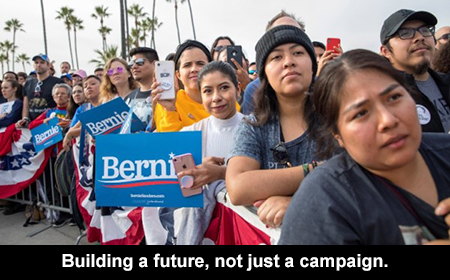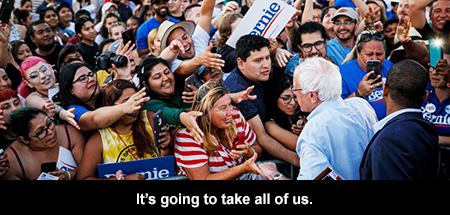Labor has been on the back foot for decades now. I am old enough to remember the Reagan turn – even the Carter and Nixon administrations, frankly. The serious move towards neoliberal economics got rolling under Carter, who was fond of deregulation and austerity. He also started a steady increase in military spending towards the end of his term – a trend that Reagan accelerated in the years that followed.
Those were not good years for workers. Firing the PATCO air traffic controllers was just a start. The union movement in the United States continued to lose ground throughout the 1980s and 1990s, when Clinton took the baton from Reagan/Bush and more fully implemented the vision of corporatism and a general attack on the rights of working people. There were a few glimmers of light in the darkness – the UPS strike in 1997, the anti globalization movement around the same time. But Thatcher’s contention that there was no alternative to capitalism continued to prevail. Until it didn’t.
Learning from teachers
We are now in the midst of a resurgence of labor organizing the likes of which we haven’t seen for decades. You could see evidence of it in some of the activism rooted in Occupy Wall Street, as well as the movement around Bernie Sanders’ campaigns. But what’s happening today is the product of a lot of hard work on the part of organizers across the country. One of the first and most dramatic examples of this was the start of the teacher’s strikes in 2018.
Now, I don’t think there are many professions in the United States that are more roundly abused than teachers. In most public school districts, they are given inadequate resources, paid poorly, and expected to compensate for all of society’s failings. When teachers rose up in 2018, including in districts that were not unionized, it put the neoliberals on notice. Even now, with the pitched attack against teaching children about race, sexual orientation, or anything salient in American history, teachers are still successfully challenging their bosses. There’s a lesson in that for all of us.
New economy, new tactics
Like many people, I first heard about Christian Smalls during the first months of COVID, when Amazon fired him for demanding that they take action to protect their workers. Over the almost two years that followed, he and his colleagues organized independently of any major unions and won. What they’ve done should serve as a blueprint for organizers across the country. That behemoth of a company drastically underestimated Smalls and his co-workers – not surprising. One of the oldest stories in the world.
Then there are the Starbucks workers. I heard some of these young people interviewed on Michael Moore’s Rumble podcast, and I was impressed not only with their energy and enthusiasm but by their deep understanding of the power relationship between workers and owners. This is more than inspiring, though. This movement is a promising sign of things to come, driven by a generation that has seen a lot of financial hardship over the last two decades.
Shake them upside-down
So what can we do? Support labor organizing in your area and nationwide, in whatever way you can. Push for a more favorable legal and regulatory environment in which people can exercise their fundamental rights as workers. And, last but not least, compel a reluctant Democratic party to change the tax laws so that billionaires cannot even exist. Call it the “shake them upside-down” law.
Finally … something to feel good about. Let’s build on it.
luv u,
jp



